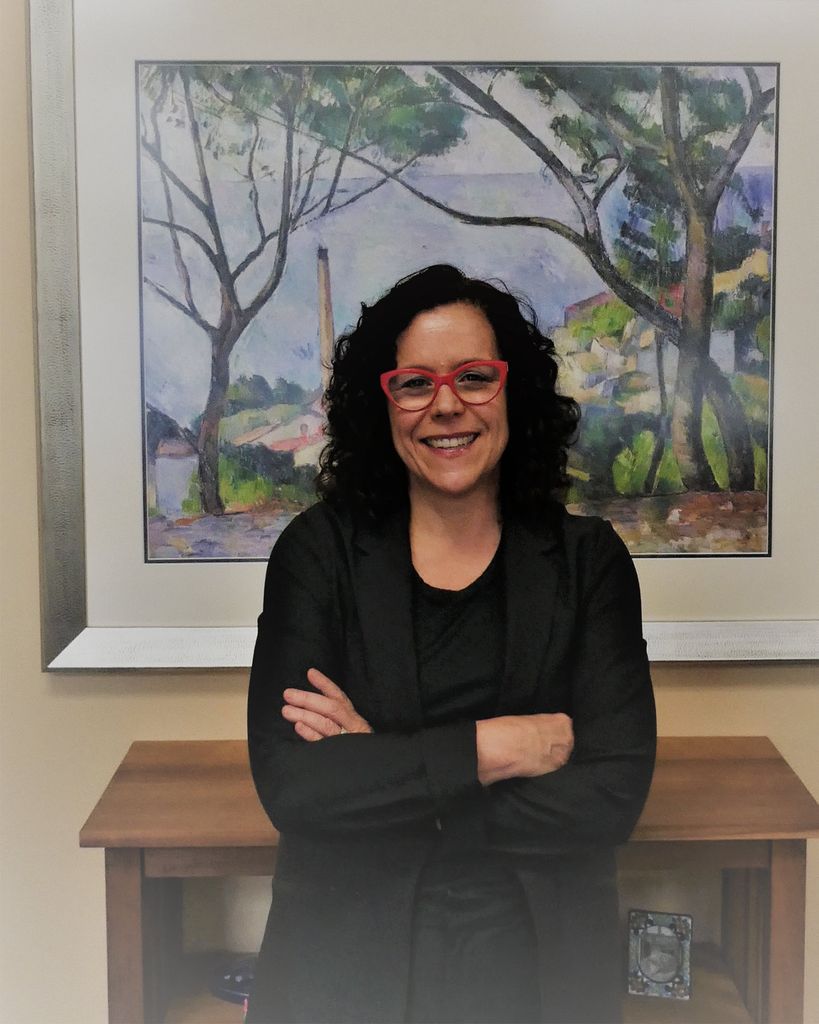The Ivory Tower Is Like the Real World in One Way: Mothers Still Do Most of the Childcare, BU Researcher Finds

Mothers working in academia were doing more childcare in their families even before they and their kids had to work and study remotely because of the pandemic. Photo by iStock/FatCamera
The Ivory Tower Is Like the Real World in One Way: Mothers Still Do Most of the Childcare, BU Researcher Finds
Lynn O’Brien Hallstein studies “the headwinds of traditional gender”
For all the supposed differences between the ivory tower and the so-called real world, the two share at least one tradition: mothers in both do more childcare than fathers. That’s the subject, and the finding, of a chapter in a recently published book and a paper in the Irish journal Sociological Observer, cowritten by Lynn O’Brien Hallstein, a College of General Studies professor of rhetoric and associate dean for faculty research and development.

Even before COVID-19 saddled mothers, academic and nonacademic, with overseeing remotely schooled children, “Research demonstrate[d] that academic women publish less than academic men, and one reason posited for this difference is that academic women may take breaks to have children and they hold more responsibilities related to raising children,” Hallstein and University of Montana colleague Sarah Hayden write in Mothers, Mothering, and COVID-19 (Demeter Press, 2021), published last month.
In their separate Sociological Observer article, the duo describe their recent research corroborating the unequal childcare that academic mothers shoulder. They interviewed 54 academic mothers, spanning disciplines, in May and June last year. O’Brien Hallstein discussed her research, which she and Hayden will present this fall in Ireland at a sociologists’ gathering, with BU Today.
Q&A
with Lynn O’Brien Hallstein
BU Today: Why study academic mothers as opposed to moms more broadly?
Lynn O’Brien Hallstein: What was happening was impacting all mothers across the board. But we were hearing from friends about the ways they were experiencing the pandemic uniquely, combining being a mother and professor. [In April 2020] Nature published an article reporting that there had suddenly been this huge drop in submissions by academic women.
BU Today: What were the preexisting inequalities for academic mothers, and how did COVID worsen them?
Lynn O’Brien Hallstein: Mothers still do an overwhelming amount of childcare. It’s not just taking care of children, it’s also about the planning, worrying, executing, etc. Even though, when asked, most men report they believe in gender equality, there’s a real disjuncture between what people believe and do.
The academic career makes these fissures unique because of the flexibility of the job. Many academic mothers report they’re grateful, genuinely, that the flexibility of the academic job allows them ways to do caregiving more than other careers, where a mother has to leave at 7:30 in the morning and doesn’t get home until 7 at night. There’s a downside of the flexibility. It can be challenging to set boundaries. Many of the mothers we spoke to have a realization that a lot of equity they thought they were getting in parenting [pre-pandemic] was a result of their kids being in school.
BU Today: They were splitting childcare not with their spouses, but with their child’s school.
Lynn O’Brien Hallstein: Exactly. That was a disconcerting realization.
BU Today: Was unequally shared childcare an issue for the same-sex couples you studied?
Lynn O’Brien Hallstein: It’s been established that queer families in all of their configurations tend to have much more shared parenting, and that bore out in our study. Because they weren’t adhering to traditional gender roles, it gave them the opportunity to talk through issues, to come together to decide who was going to do what and when.
BU Today: Academia is supposedly progressive, but you’re describing traditional childcare in the ivory tower.
Lynn O’Brien Hallstein: Yes. When we put out the call to interview academic mothers, within 36 hours, we had 86 respondents. We ended up interviewing 54. For the qualitative, in-depth interview process we did, it’s a decent sample. It’s not huge, but it’s not small.
BU Today: What “structural and social pressures,” to quote your article, promote unequal childcare?
Lynn O’Brien Hallstein: I call them the “headwinds of traditional gender,” even when partners say they support gender equity in parenting. Some of it is about internalized gender assumptions; many women come to parenting with expectations about how they want to parent.
A lot of it is about the jobs that both partners have; some jobs allow more flexibility, and families say, “Because [I’m] an academic and he needs to leave from 7 in the morning to 7 at night, I do the primary parenting because I have more flexibility.” If the second parent is working from home and the kids have no place to be but home because of the pandemic, that’s a structural barrier, and families have to make hard decisions. When the pandemic first hit, ensuring gender equality probably wasn’t in the forefront of everyone’s mind. It was about: I need to keep my family safe.
Because of the gender pay gap, families make decisions about: we need to have the person who’s making more money support the family if one of us has to quit. College-age students say of course they expect their wives to work, maybe have a more powerful career, but if [they] can’t make the ideal work, young men tend to fall back on traditionalism, whereas young women are really looking for a Plan B so they can support themselves.
The pandemic has laid bare that there’s still work to do in our families. We have not heard from our academic mothers that any have left their jobs, but we do know there are many women leaving jobs because of the pandemic, because someone had to be home with the kids. They’ve come up with the term “shecession.”
BU Today: How can we address these inequalities?
Lynn O’Brien Hallstein: As we continue to advocate for gender equity and [fixing] the pay gap, within families the most important issue is continuing ongoing conversations about: if we believe in equity, how can we make that happen? At the same time, universities and workplaces need to be having conversations about how can we create systems where people can have families and work.
Comments & Discussion
Boston University moderates comments to facilitate an informed, substantive, civil conversation. Abusive, profane, self-promotional, misleading, incoherent or off-topic comments will be rejected. Moderators are staffed during regular business hours (EST) and can only accept comments written in English. Statistics or facts must include a citation or a link to the citation.